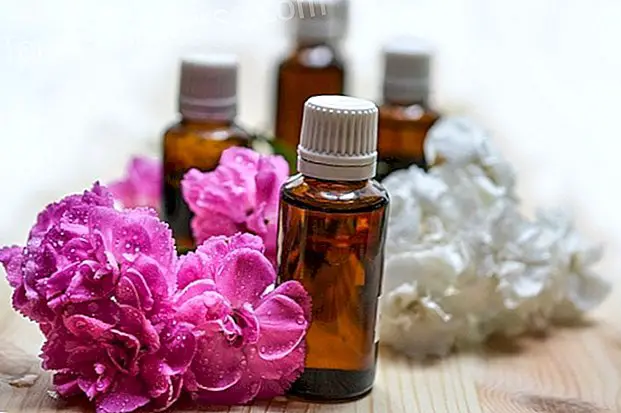Water is the most important constituent of the body and represents approximately 70% of its total weight. What in naturism is called the terrain, is basically composed of organic liquids : intracellular and extracellular, lymph and blood.
Any qualitative or quantitative modification of these liquids will cause an imbalance and the onset of health disorders .
I invite you to know our Index, here you have access to all the topics that we will deal with today.
Table of Contents
|
Water, Your Great Ally

Nutrition and Water Purification
Water plays a fundamental role in organic functioning.
It is the conductor of electricity and, as electrical beings that we are, we need water so that the most important functions of the human body such as breathing, circulation and elimination can be performed n.
Water is necessary to nourish, eliminate waste and for many of the organic functions that the cells perform by trillions of chemical reactions that take place in the body .
Therefore, it is clear that water must be taken in sufficient quantity and purity to replenish it and keep it in a state of equilibrium.
How much water do we need?
Depending on the conditions, the average of the external elimination of the water that is produced in the organism, oscillates between 2.5l and is produced by four ways: the kidneys, which eliminate 1.5l ; the skin, which gives off 0.5l through sweat; the lungs, which exacerbate 0.4l; and the intestines, which evacuate 0.1l.
Depending on the weight and body constitution, the body contains an average of 50l of water for a body of 70kg.
Under normal conditions, approximately 5% of those 50l or the equivalent of 35ml is eliminated for each kilo of body weight; that is, 2.5l daily in both cases.
Therefore, the contribution of water to the organism would have to be, at a minimum, that amount or that corresponding to the weight.
Depending on the habits you have, we can summarize that the amount of liquids ingested by the mouth, such as water and other drinks, would be 1.5l; through solid foods, and depending on the kind of food, between 0.7 and 1l; and by the metabolic route, 0, 3l. In total, 2.5l.
So, to maintain the correct water balance, if the daily loss is 2.5l, the same amount will have to be replenished, that is, 2.5l. Otherwise, the retention and dehydration process will begin.
Water intake should be greater depending on the conditions in which the body is found, external influences and if you want to achieve a specific therapeutic goal, and may have to drink up to 3 liters of water per day by mouth.
“ A good indicator of the lack of water in the body is the color of the urine. A well hydrated person produces a urine with barely color . A dehydrated person produces a yellow urine, and if the person has pathologies, very yellow . ”
Sometimes, fluid retention by the body occurs abnormally. The main causes that cause this retention are:
- Drink very few liquids.
- Take excess sodium, especially sodium chloride (refined common salt).

The Sources of Supply

- Foods -
The healthiest water source obtained from food, the purest, physiological and abundant, is the one that contains fresh and organic fruits and vegetables consumed just as nature offers them: irrigated by spring water, nourished by the earth and cooked by the sun.
Depending on the kind of food, if it is cooked, salted, starchy, farinaceous, starchy or dry, it will demand more or less water to complete its digestion and metabolization.
The water supply in this kind of food will be zero, since its content is used for digestion and may even need more, so the water supply balance will be negative.
“By eating a lot of raw fresh fruit and vegetables or as pressed juices, the direct supply of water can be minimized. If mixed foods are eaten, the direct supply of water will have to be respected, but if the foods that are eaten require water for digestion, the normal supply of direct water will have to be increased. ”
- Drinks -
The ideal and healthiest drink for humans, animals and plants, is pure water as nature offers it to us.
However, human society has introduced other kinds of liquids, some of them very harmful.
Drinks such as tea, coffee, wine, beer, soft drinks, energy drinks and packaged concentrated juices contain a lot of water, but also caffeine, alcohol, sugar, sweeteners and chemicals that are highly dehydrating .
Herbal infusions, without sugar or other additives, if they are light and taken without a healing purpose, can also provide a lot of water. Some of them are: verbena, mint, lime, lemon balm ... These infusions are highly moisturizing, except for those that have diuretic effects that, on the contrary, will cause dehydration.
Those that have medicinal effects have to be used for this purpose, instead of as water suppliers to the body and are usually identified by their bitter taste.
Breast milk does provide high and magnificent hydration, being the most complete food for newborns as long as the mother is in a healthy and toxic state.
Waters
- The most suitable water :
For the human organism, it is pure water from an untreated spring that contains minerals that give it an alkaline pH, that is molecularly structured and energized and that is ingested at room temperature.
All the drinking water that Nature offers us in a natural way, without having been adulterated or treated by the hand of the human being.
- The magnetized water :
It has been shown that the small clusters or chains of molecules (clusters) that form this kind of water are made up of 3 to 5 molecules per group, while in other waters they are 30 to 50 molecules per group.
Water gathered in small groups is used by the body very efficiently, entering the cell much more easily. The water ordered by magnetic fields ensures the hydration of the tissues by its easy penetration.
- The energized water :
When writing positive words like love and thanks on paper and sticking it in a bottle of water, beautiful and delicate crystalline patterns are formed.
Words vibrate and turn that vibration into sound; Each one has its own set of vibrations, creating different crystalline structures.
In each language, each word is unique and exists only in that language.
The influences that the water receives go even beyond those that we directly cause, since they also influence a multitude of external, environmental and external factors to the Earth itself .

What factors determine the quantity?

- The consumption of dry, concentrated and fatty foods, in order to dilute and digest them.
- Excessive salt intake as a condiment, in order to eliminate it.
- Over-feeding, in order to eliminate waste.
- Stress and alteration thrills, in order to eliminate the toxins they generate.
- Excess toxic and accumulated poisons, in order to be eliminated.
- Internal acidosis, in order to neutralize and drive acids to the outside.

How and when should we drink it?
- Drink it without waiting to be thirsty, having thirst has already produced dehydration.
- Drinking it throughout the day, evenly distributed, helps the digestive process.
- Drink it between meals, to avoid diluting gastric juices.
- Drink it at most 30 minutes before a meal and from 2 hours later.
- Drink some water in case of very dry meals to support digestion.
- Drink it before exercising to have it available and produce sweat.
- Drink it after exercise to replenish water loss.
- Drink it when you wake up, to correct the dehydration produced during sleep.
- Drinking 3 glasses on rising will relieve constipation.

Alkaline Water

Water is the base of all liquid and its composition is the fruit of the union of two molecules of hydrogen with one of oxygen, forming H2O .
The pH is a common aspect to any liquid and is a consequence of the chemical format of the water it contains and of the substances added.
The pH is defined as the potential of hydrogen that will mark the degree of acidity or alkalinity of any substance, and is measured with a scale ranging from 1 to 14, in which 1 is the most acidic and 14 the most alkaline, 7 being the neutral.
If it is also ionized, the molecular groups of water, called clusters, are reduced in size, going from 12-14 or even 20-24 molecules per group (per cluster) to only 4 or 6, with which the organic penetration and cell hydration is much higher.
Hence, alkaline water is very well absorbed by the body thanks to its high penetration and hydration, avoiding the waterlogging produced by other waters with groups of high molecules .
Acidic substances reject oxygen and alkaline substances attract it, so that alkaline water will contain more oxygen than acid.
It will also influence the temperature of the water: at a higher temperature it will have lower oxygen uptake and at a lower temperature it will capture more oxygen. Hot water contains little oxygenation .
Gasified, sweetened and additive drinks are highly acidifying and result in the consequent demineralization of the body and the consequences that this entails.
Alkaline water will help to balance the natural processes of organic degradation that are slightly acidic, offsetting and balancing these natural cellular metabolic reactions .
Ideally, find the spring water alkalized by nature itself through the minerals in the soil. Acidic or low alkaline water can become alkaline to the degree required.
The ideal measure of the pH of the water to proceed to an internal organic rebalancing work is pH 9.5 for two basic aspects, which are hydrate and alkalize.

Sea water

Seawater is very useful for certain uses, as long as it is used correctly.
It has balancing, replenishing and healing properties, as it helps to restore the original mineralization of our cell fluids.
To drink it regularly, you have to follow some guidelines depending on the purpose you want to achieve.
- How to prepare seawater and what it is for -
- Hypertonic :
It is as it is in the sea, with a content of 36 grams per liter of salts, 4 times higher than the salinity of the organism.
To regulate intestinal transit and constipation; drinking a glass in the morning on an empty stomach, it is laxative.
To brush the teeth and sanitize the oral cavity by gargling.
For digestive heaviness, acidity ...
As a disinfectant use.
- Isotonic :
It is the result of the mixture of three parts of fresh water and one of sea water to get 9 grams of salts per liter, which is the proportion in which the water is in the body.
As a liquid salt, to salt food instead of solid salt. If possible, it will be better to add it without having to boil.
For preventive and nutritive effects, taking it sparingly in small amounts so as not to lose the minerals and rinsing it in the mouth for a while so that they are absorbed directly by the oral mucosa.
Before meals to reduce the feeling of hunger and anxiety.
- Hypotonic :
It is produced when mixed with fresh water, resulting in a salinity of less than 9 grams per liter, which will be less than the salinity of the internal organic environment. Its common uses can be in two formats:
- Low mineralization hypotonic :
To enrich 1 liter of mineral water, add 5ml of seawater, which is the equivalent of a cap of the same bottle approximately.
It can also be added to juices, tea, infusions ...
High mineralization hypotonic :
As a contribution of minerals that the body needs. To do this, you have to enrich the mineral water with 1 gram of minerals per liter, which will be achieved by adding to each liter of mineral water the equivalent of a "shot" of seawater .
Another way to use it is to cook food, thus avoiding having to add salt, especially those that, when metabolized, produce acidification in the body, such as cereals.
Seawater minerals neutralize this effect to some extent. In food cooking and according to the particular taste, the proportion would be that 1/3 of the water used was seawater .
With heat the minerals are preserved without altering, but it is always better to add it at the end without having to boil it.
A person can live more than 3 days drinking exclusively seawater . The experimental solution was to drink a spoonful of pure seawater every 20 minutes, drinking it slowly and letting the saliva reduce the salinity of the ingested water .

The Healing Power of Water

The healing properties of water depend on the amount you drink.
They also depend on the way in which this magical element is taken, which is water and regulates more than 50 functions in the body.
The therapeutic applications of water, indicate the principles and rules to follow for their healing use:
The body needs a certain daily amount of quality water to perform its functions satisfactorily. The quantity will vary according to a series of factors, such as weather, age, physical activity, body weight, and the quality will be given by the purity of the water, whatever of mineralization that is weak, not chlorinated and that has not been mixed with other liquids (juices, infusions, broths, food water ).
It is estimated that the amount of daily water needed by the human body is a universal constant (no matter if you are in Mexico, Australia, Spain, Colombia or Japan), 35 deciliters for each Kilo of body mass. To find out how much water it is for us to drink a day, we will apply the formula: 35dl per body weight in kg. For example: a 70 kg person should drink 2.45 liters.
Avoid drinking during meals or while waiting.
The approximate amount of water that the body accepts at one time is around a quarter of a liter (a large glass of water). This equals one shot.
Half an hour before breakfast, drink the first half liter (if it costs to ingest such amount, start with 1 glass and after a few days gradually increase to 2).
Frequency of 1 glass every 2 hours to complete the daily water intake.
Waiting time of half an hour, before and after the drinks of other liquids.
Regarding meals, take only 1/2 water before and 2 hours later.
It is recommended to add 2 to 3 grams of sea salt daily to the water and drink it in several doses during the day.
The effects of this form of treatment can be appreciated after fifteen days of carrying it out without exception, although it is advisable to reach three weeks to consolidate this healthy habit and keep it for a minimum of forty days until total health improvement is achieved.
" With this diet-water treatment we will see the improvement experienced with the disappearance of joint pain and dry skin, greater general well-being and rejuvenation, improvement of physical and cognitive abilities ..."

Reflection

“ Water gives us life, it is the support of all life and it turns off life, we are born in water, we exist in water and we leave water. Become aware of the vital importance of water and your health will change completely. The living water will vivify you, the dead water will mortify you. ”
If you want to know more about this exciting natural world, I invite you to visit the web www.institutoessen.com
Author : Josep María Montserrat - Cellular Nutritionist, Editor in the Great Family of hermandadblanca.org






